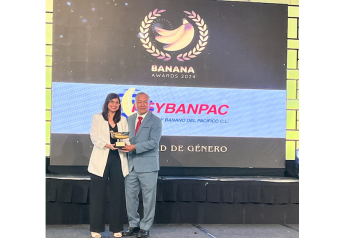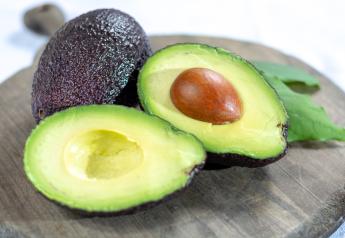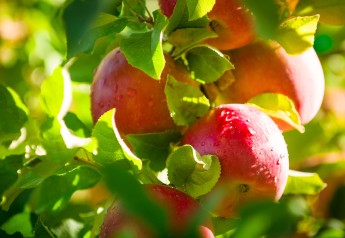Rothamsted Research to carry out field trial with GM Camelina plants

Rothamsted Research submitted an application on Feb. 1, 2016. to the Department for Environment, Food and Rural Affairs for permission to carry out a genetically modified field trial on the Rothamsted Farm in 2016 and 2017. The risk assessment was reviewed by the independent Advisory Committee on Releases to the Environment (ACRE), and a 48-day public consultation was carried out by Defra. ACRE is satisfied that all scientific issues raised by the public with respect to this application have been addressed.
During this period and in addition to the formal consultation run by ACRE, Rothamsted Scientists have also spoken to and answered questions directly from the public, and special interest groups that have been interested in the research project and the trial.
Rothamsted Research is granted permission by the Department for Environment, Food and Rural Affairs (DEFRA) to carry out a GM field trial on the Rothamsted Farm in 2016 and 2017. Scientists at Rothamsted Research, who receive strategic funding from the Biotechnology and Biological Sciences Research Council (BBSRC), have previously trialed in the field Camelina plants that accumulate omega-3 long chain polyunsaturated fatty acids (LC-PUFAs) in their seeds. Currently, they have developed plants that can also accumulate astaxanthin, a pigment that is commonly used as a feed additive in aquaculture. The trial is part of the ongoing strategic programme of research at Rothamsted. The purpose of the trial is to evaluate in the field the performance of the novel traits combined and individually.
Omega-3 LC-PUFAs have been shown to be beneficial for human health and contribute to protection against coronary heart diseases (CHD).The primary dietary sources of these fatty acids are marine fish either wild stocks or farmed fish (aquaculture). Fish like humans do not produce these oils but rather they accumulate them through their diet in the wild or through fishmeal and fish oil in farmed fish. Around 80 percent of all fish oil is consumed by the aquaculture sector and this rapidly expanding modern industry is seeking new omega-3 LC-PUFAs sources to ensure its production practices remain sustainable and nurture the essential aquatic food web.
One potential approach towards flexible and sustainable supply of omega-3 LC-PUFAs is to engineer a crop plant with the capacity to synthesise these fatty acids in seeds. Rothamsted Research, through the strategic funding that receive from the BBSRC, have over the years developed genetically engineered Camelina plants that can successfully produce omega-3 LC-PUFAs in the glass house (Ruiz-Lopez et al.2013) and in the field (Usher et al. 2015)
Astaxanthin, is a carotenoid pigment that has antioxidant properties and is used as a feed additive in fish farming. It is the pigment that gives salmon its characteristic pink colour. Astaxanthin is found in some marine organisms at the base of the food-web such as algae and krill. Astaxanthin is also synthetically made and subsequently used as feed additive.
Rothamsted Research scientists and colleagues in the USA, have been testing in the laboratory and the glasshouses whether it is possible to develop GM plants that can produce both omega-3 LC-PUFAs and astaxanthin. This potentially could ensure optimal use of the GM crop as a source of the key components required for ultimately sustainable fish production.
Professor Johnathan Napier, lead scientist of this project at Rothamsted Research said: "We are very pleased to have been granted permission by Defra to carry out the proposed controlled experiment in the field."
"The Omega-3 LC-PUFAs that are beneficial for health are eicosapentaenoic acid (EPA) and docosahexaenoic acid (DHA). Plant sources of omega-3, e.g. Flax seed, do not produce EPA and DHA; instead they produce shorter chain omega-3 fatty acids such as a-linolenic acid (ALA). ALA does not confer the health-beneficial properties associated with EPA and DHA, despite the former also being an omega-3 fatty acid. Not all omega-3 fatty acids are equivalent. We used synthetic gene sequences involved in the biosynthesis of omega-3 LC-PUFAs that have been optimised in order to be functional in Camelina plants. These synthetic sequences are based on the sequence of genes found in photosynthetic marine organisms, and other lower eukaryote species such as mosses and oomycetes."
"We have produced three varieties of plants, one that seven synthetic genes have been introduced into the plant and they make EPA and DHA omega-3 LCPUFAs, one that has three synthetic genes and makes astaxanthin and one that has combined the genes to make EPA and DHA and astaxanthin. The reason why we needed to introduce this number of synthetic genes is that the synthesis of omega-3 LC-PUFAs and astaxanthin requires multi-step processes. In order to achieve maximum production of these oils and the pigment in the seed of Camelina plants we had to help the internal biosynthetic machinery of the plant to shift from ALA towards the production of EPA and DHA and also produce the pigment", Johnathan Napier added.
The controlled experiment will be carried out at Rothamsted Research and sowing of Camelina seeds will take place in May this year. The plants will be harvested August/September 2016, and a small amount of seed will be used to analyse the oil content, with all the rest of the seed and plant material will be destroyed according to the consent's conditions. The GM inspectorate, which is part of the Animal and Plant Health Agency (www.gov.uk/apha) will be carrying out regular inspections.
This controlled experiment will be part of the Institute's Strategic Programme of Research Designing Seeds for Nutrition and Health, which receives financial support from the BBSRC.
More information on this project can be found on our dedicated Questions and Answers Section on Rothamsted Research website at www.rothamsted.ac.uk/camelina
Information about this trial is also available by Defra: https://www.gov.uk/government/collections/genetically-modified-organisms-applications-and-consents#applications-to-release-genetically-modified-organisms







